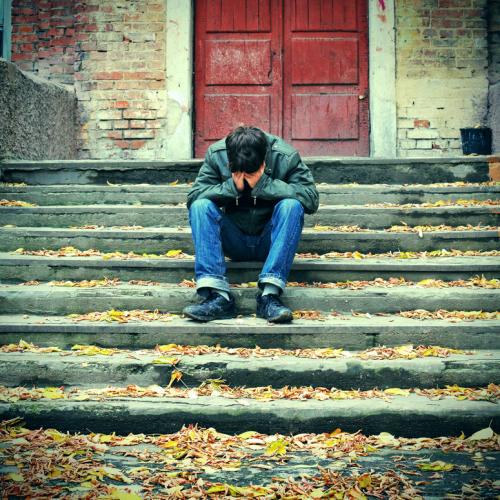When We Blame Ourselves
"I know it's my fault. Now I'm being punished. I can't make this right. What can I do?" Melissa choked through her tears.
Melissa's son Carter was her third child. He came out screaming, and (according to Melissa) never stopped talking. He grew like a weed.
One hot summer day, the family was in the back yard enjoying their pool. Melissa turned away for a moment. When she looked back, Carter was gone. She frantically searched before finally noticing him on the bottom of the pool. Carter was three years old.
"I should have been watching. God will never forgive me for this. And I'll never, ever forgive myself. Because of me, Carter is dead," she said with a cold stare.
When we feel guilty, we punish ourselves
When someone close to us dies, we can feel responsible. How could this happen? We missed something. We should have been there. We should have known.
We add guilt and remorse to the already unbearable pain of losing them. We begin to punish ourselves, consciously or subconsciously. The shame cripples us. Even if our faith is deep and solid, some of us have trouble raising our eyes to heaven, or even whispering a prayer.
Perhaps we see this tragedy as punishment for the things we did or didn't do. Maybe we believe our loved one was taken from us because we weren't good enough. We've messed up too much and crossed a line somewhere, and now God, karma, fate, or the universe has given us what we deserve.
Underneath it all is the shaky belief that if we had been better people this would not have happened. We're bad and our loved one is dead. Forgiveness is impossible.
In grief and in life, we often confuse being responsible with being in control. That never works, because it's simply not true. We influence much, but are never "in control" when it comes to relationships, other people, or circumstances. We don't even cause our own hearts to beat.
We aren't perfect. Far from it. We aren't omniscient (all-knowing) - not even close. We're not omnipresent (everywhere at once), but limited to being in one small spot on this planet at any given time. We’re not omnipotent (all-powerful) - not by a long shot. Yet we sometimes expect ourselves to be all of these.
Whatever our belief system, it must provide somehow for the resolution of guilt. Forgiveness must be included and available, or else we are lost and without hope.
Blaming ourselves is a common reaction to some deaths. But it is not healthy, and hinders our recovery and healing.
"Part of loving and honoring you is forgiving myself. I'm working on that."

An exercise to consider:
This exercise will take a little time. It may be emotional. That's okay. We're processing some tough stuff here.
Take a moment and list anything you feel responsible for related to the death of your loved one. Be as specific as possible.
Do you believe you can be forgiven? What would it look like to forgive yourself?
Write a letter or poem to your loved one expressing the guilt you feel. Be as specific as you can. Consider asking forgiveness from God, your loved one, and perhaps your family.
Now, imagine your loved one in front of you, and read this letter out loud.
When done, go back to the letter and write at the bottom, "I forgive myself." Read it out loud.
We often need to forgive ourselves over and over again, each time at a deeper level. Keep forgiving. Keep releasing yourself. This is part of healthy grieving.
Adapted from the new bestseller, Shattered: Surviving the Loss of a Child. Watch the Shattered videos here: Gary, Michelle.



Comments